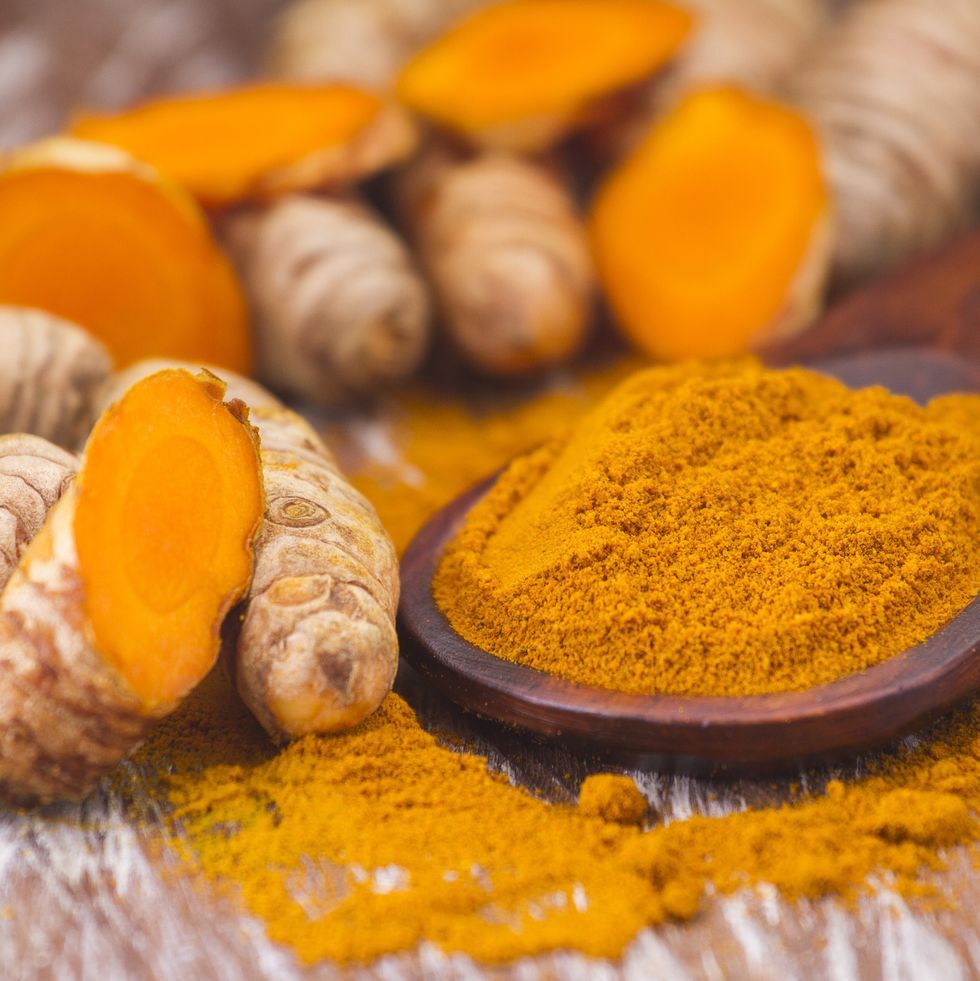Turmeric treats depression and allergies. In Southeast Asia, this bright orange spice is still used as a medicine. And in general, it is quite reasonable. Here are some scientifically proven examples.
Why is turmeric useful?
1.Reduces chronic inflammation
Chronic inflammation is one of the most relevant horror stories of modern medicine. This is the long-term name, out of control, but almost imperceptible from the immune system’s outside activity. Scientists believe that it is chronic inflammation that often triggers diseases such as
- Diseases of the cardiovascular system, including atherosclerosis-inflammation in atherosclerosis
- Metabolic disorders (metabolic syndrome) and obesity Inflammatory links between obesity and metabolic disease;
- Different types of cancer
Turmeric contains many active chemicals (curcuminoids), the most famous of which is curcumin, a powerful antioxidant with strong anti-inflammatory effects. Based on this, it is assumed that regular consumption of turmeric can reduce internal chronic inflammation. This means, reduce the risk of deadly diseases.
Curcumin is so potent that its effectiveness is comparable with some anti-inflammatory drugs. But no side effects.
An important point; curcumin is poorly absorbed into the bloodstream. To maximize the benefits of turmeric-flavored foods, eat them with black pepper. Its main biological component is the pipeline influence of piperine on the pharmacokinetics of curcumin in animals and human volunteers- improves the bioavailability of curcumin. It allows the main ingredient of the spice to stay in the body and act in simple terms.
Curcumin is also a fat-soluble substance, so it should be seasoned with fatty foods, such as rice pilaf or stewed pork.
Read also: What Happens To Your Body If You Eat Cashews Every Day?
2. Slows down aging and reduces the risk of dementia
Oxidative stress, that is, an excess of free radicals in the body, is a factor that accelerates aging. Also, free radicals, which damage cells in all organs and tissues, are responsible for an increased risk of cardiovascular disease, cataracts, various brain dysfunctions, and cancer development.
Turmeric is full of antioxidants—antioxidant and anti-inflammatory properties of curcumin – substances that neutralize free radicals’ action. Also, curcumin increases the antioxidant activity of the body. That is, it teaches our body to resist the attack of free radicals independently.
3. Fights depression
Turmeric or curcumin supplements are arguably excellent antidepressants.
For example, there is a study covering 60 people with depression. The volunteers were divided into three groups. The first was prescribed the famous antidepressant drug. The second is a supplement containing 1 gram of curcumin. The third is both an antidepressant and curcumin.
Six weeks later, doctors examined the participants in the experiment. It turned out that the volunteers from the first and second groups improved to the same extent – that is, curcumin was no less effective than the promoted drug. And the best results were shown by the third group.
Scientists speculate that turmeric’s antidepressant activity is related to its effects on the brain.
Perhaps curcumin stimulates the production of the hormones dopamine and serotonin. Research is still ongoing, but the promise of turmeric as an antidepressant is promising.

4. Improves the condition of arthritis
Arthritis is a chronic inflammation of the joints. Doctors believe that an immune failure causes it: the immune system mistakenly attacks its own cells (mainly the joints of the hands, wrists, knees are affected). Unfortunately, arthritis cannot be cured. You can only alleviate its symptoms. And in this regard, turmeric is again on top.
So, in one study with the participation of people who have rheumatoid arthritis, it turned out that half a gram of curcumin per day relieves pain and reduces joint edema even more effectively than a well-known anti-inflammatory drug.
This is not the only such data. In another study, people with arthritis received only 200 mg of curcumin per day and reported that their condition improved.
Also read: Where Does Bloating Come From And How To Get Rid Of It
5. Protects the liver from damage
There is data that regular consumption of curcumin reduces the risk and stops developing various liver diseases. This applies to non-alcoholic fatty liver disease (turmeric also slows down the accumulated fat in this organ). Curcumin also reduces liver damage in other liver diseases, such as chronic hepatitis.
Adapted and translated by Wiki Avenue Staff
Sources: Life hacker






